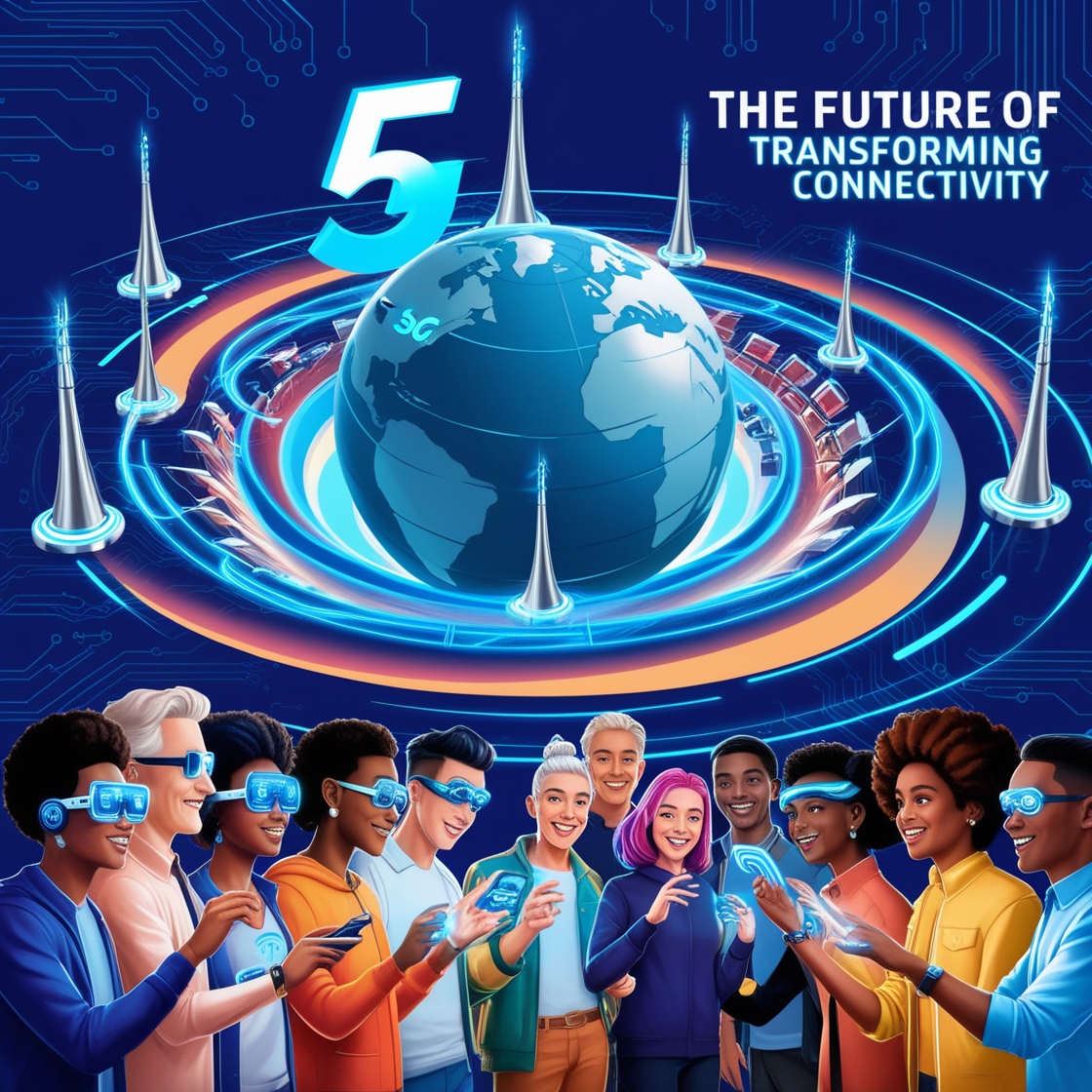Introduction
The world is buzzing with the promise of 5G technology, and for good reason. As the next generation of mobile networks, 5G is not just about faster internet; it’s about transforming how we connect, interact, and live our lives. In today’s fast-paced world, connectivity is more than a convenience—it’s a necessity. Let’s dive into how 5G is set to reshape our world.
What is 5G?
At its core, 5G is the fifth generation of mobile network technology. Unlike its predecessors, 5G boasts remarkable speed, lower latency, and increased capacity. Imagine downloading an entire movie in seconds instead of minutes—that’s the power of 5G! It significantly enhances the user experience by providing seamless connectivity and enabling a plethora of new applications.
The Evolution of Connectivity
To truly appreciate 5G, it’s essential to understand the journey of mobile networks. From 1G’s voice-only capabilities to 4G’s robust data services, each generation has brought us closer together. With each leap forward, technology has bridged gaps in communication and connectivity, paving the way for our hyper-connected future.
Key Benefits of 5G
The advantages of 5G are manifold:
- Faster Speeds: 5G can deliver speeds up to 100 times faster than 4G, making it possible to stream high-quality video and access content on-the-go without buffering.
- Low Latency: With latency as low as one millisecond, 5G is crucial for applications requiring real-time responses, such as gaming and autonomous driving.
These improvements aren’t just about convenience; they enhance our daily experiences and enable innovations that were previously unimaginable.
Applications of 5G Technology
The potential applications of 5G are vast:
- Smart Cities: 5G can connect countless devices in urban areas, optimizing traffic flow, enhancing public safety, and improving energy efficiency.
- Healthcare: Remote surgeries and telemedicine can become the norm, enabling doctors to operate on patients thousands of miles away with the utmost precision.
- Education: With 5G, remote learning experiences can be enriched through augmented reality (AR) and virtual reality (VR), making education more interactive and engaging.
5G and the Internet of Things (IoT)
IoT refers to the interconnected network of devices that communicate and share data. 5G is a game-changer for IoT because of its ability to connect a staggering number of devices simultaneously without compromising speed or performance. Imagine your fridge communicating with your grocery store to automatically reorder milk!
Challenges and Limitations of 5G
While the benefits of 5G are exciting, challenges remain:
- Infrastructure Requirements: Deploying 5G networks requires significant investment in infrastructure, including new cell towers and antennas.
- Security Concerns: With increased connectivity comes heightened security risks. Protecting user data and privacy is paramount as 5G expands.
The Role of 5G in Business Transformation
5G is more than just a consumer tool; it’s set to revolutionize the business landscape:
- Operational Efficiency: Businesses can leverage 5G to streamline processes, enhance productivity, and reduce operational costs.
- New Business Models: With 5G, companies can create innovative solutions and services that cater to an increasingly digital marketplace.
Global 5G Deployment Trends
The rollout of 5G is happening worldwide, with varying adoption rates. Countries like South Korea and China are leading the charge, while others are still in the early stages. Major telecom companies are investing heavily in infrastructure to bring 5G to their customers.
The Future of Mobile Gaming with 5G
As gamers know, latency is everything. With 5G, the gaming landscape will transform. Cloud gaming will thrive, allowing players to enjoy high-quality graphics without the need for expensive hardware. This means anyone with a decent internet connection can enjoy top-tier gaming experiences.
5G and Autonomous Vehicles
The rise of autonomous vehicles is heavily reliant on 5G. This technology enables real-time communication between vehicles and infrastructure, enhancing safety and efficiency. Imagine cars that can communicate with traffic lights and other vehicles to optimize routes and reduce accidents!
Environmental Impact of 5G
While the benefits are clear, it’s essential to consider the environmental impact. The infrastructure for 5G can consume significant energy, raising concerns about sustainability. However, advancements in technology also promote greener practices that can mitigate these effects.
Public Perception and Misinformation
5G has faced its share of misinformation, leading to public concern over health risks and safety. It’s crucial to address these myths through education and transparent communication from reliable sources.
Regulatory Framework for 5G
As 5G deployment accelerates, regulatory frameworks must adapt. Governments need to establish policies that ensure safe and equitable access to this transformative technology while addressing privacy and security concerns.
Conclusion
The future of 5G is bright and full of potential. As we embrace this transformative technology, we can expect significant changes in how we live, work, and connect. From smarter cities to revolutionary healthcare solutions, 5G is not just about faster internet; it’s about creating a more connected, efficient, and innovative world.
FAQs
1. What is the primary benefit of 5G over 4G?
The primary benefit of 5G is its incredibly fast data speeds, which are up to 100 times faster than 4G, enabling seamless streaming and quicker downloads.
2. How will 5G affect everyday life?
5G will enhance everyday life by providing faster and more reliable internet connections, enabling smart home devices, and facilitating advanced healthcare solutions.
3. Are there health risks associated with 5G?
Current research suggests that 5G is safe; however, public concern persists. It’s important to rely on scientific evidence and expert opinion regarding health risks.
4. When will 5G be available everywhere?
While many regions have begun rolling out 5G, widespread availability may take several years, depending on infrastructure development and regulatory processes.
5. How does 5G improve internet speed?
5G improves internet speed through advanced technologies like millimeter waves, small cell technology, and improved network management, allowing for faster data transmission.
